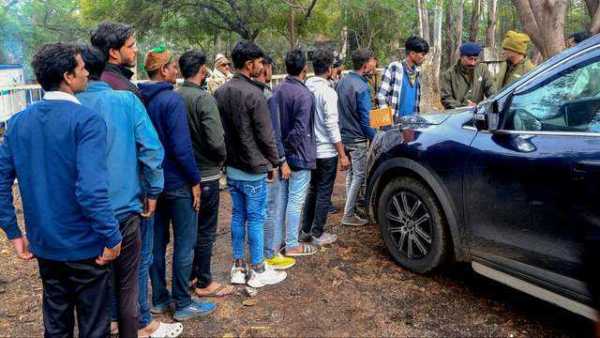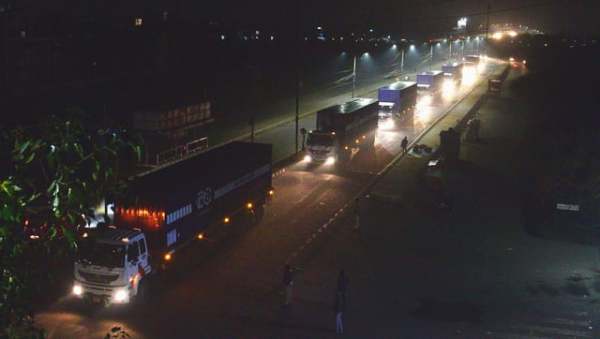
Various organisations on Thursday protested in Indore against the plan to dispose of 337 tonnes of Union Carbide factory waste at Pithampur in Dhar district, about 30 km from the city.
The protesters claim that the move poses a threat to the health of the people living in the industrial town and the environment and will also harm the residents of Indore, Madhya Pradesh’s financial capital, and its surrounding areas.
The protesters gathered outside the Revenue Divisional Commissioner’s office in Indore.
Protests have erupted at various places since the waste from the Bhopal-based Union Carbide factory, which triggered one of the world’s worst industrial disasters, was transported to Pithampur last week for incineration.
“Our only demand is that the waste of the Union Carbide factory should not be burnt in Pithampur,” said Ramswaroop Mantri, convener of farmer body United Kisan Morcha in the Malwa-Nimar region of western Madhya Pradesh.
“We are trying to raise awareness among the people through our demonstration,” he told PTI.
According to the protesters, there are about 1,250 units in the Pithampur industrial area, about 250 km from Bhopal, that provide jobs to thousands of people, including migrant labourers from across the country.
 Huge quantities of waste from Bhopal's Union Carbide factory have been brought for disposal in Pithampur
Huge quantities of waste from Bhopal's Union Carbide factory have been brought for disposal in Pithampur
MP Indian National Trade Union Congress president Shyamsundar Yadav said, “The state government says that the Union Carbide waste is not poisonous. Then why was it not disposed of in Bhopal itself?”
The waste should be taken to Pokhran, located in Rajasthan’s Thar desert, and buried there, he said.
Representatives of different labour, social and farmer organisations and Gandhian activists also participated in the protest.
The material from the now-defunct factory in Bhopal was brought to a waste disposal unit operated by a private company in Pithampur on 2 January.
The move triggered violent protests, including self-immolation bids, in Pithampur last week. The situation in the industrial area is now peaceful.
On 6 January, the Madhya Pradesh High Court granted six weeks to the state to take steps to dispose of the waste by adhering to safety guidelines.
On the intervening night of December 2-3, 1984, highly toxic methyl isocyanate gas leaked from the Union Carbide pesticide factory in Bhopal, killing at least 5,479 persons and leaving thousands with serious injuries and long-lasting health issues.